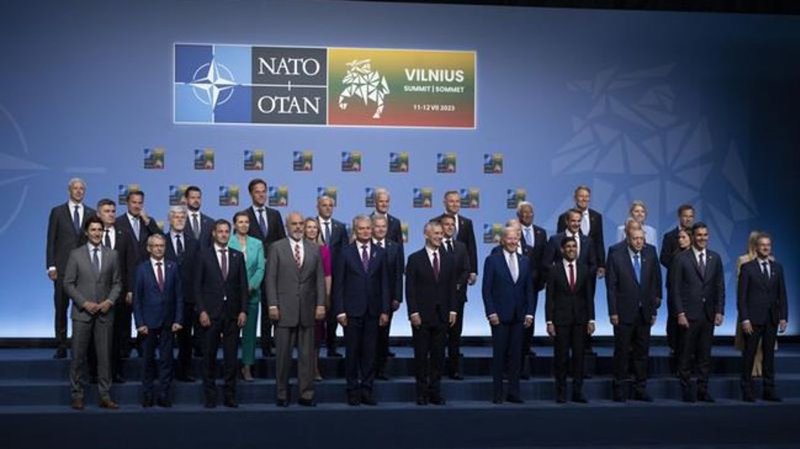
Ukraine now has a path to NATO membership, but allies have not set out a timeline
VILNIUS, Lithuania — A stark exhibition of war photographs lines the walls of a tunnel on the way into the NATO leaders’ summit.
Signs printed on shuttle buses read: “While you’re waiting for this bus, Ukraine is waiting for NATO membership.”
Reminders of Russia’s war on the eastern European country are everywhere this week in Vilnius, Lithuania. Even in the flower beds. Rows of blue and yellow blooms outside the venue are arranged to match the Ukrainian flag.
Ukraine’s president, Volodomyr Zelenskyy, arrived in the Lithuanian capital Tuesday and was greeted like a rock star in a city park, where he spoke to a cheering crowd decked out in blue and yellow.


